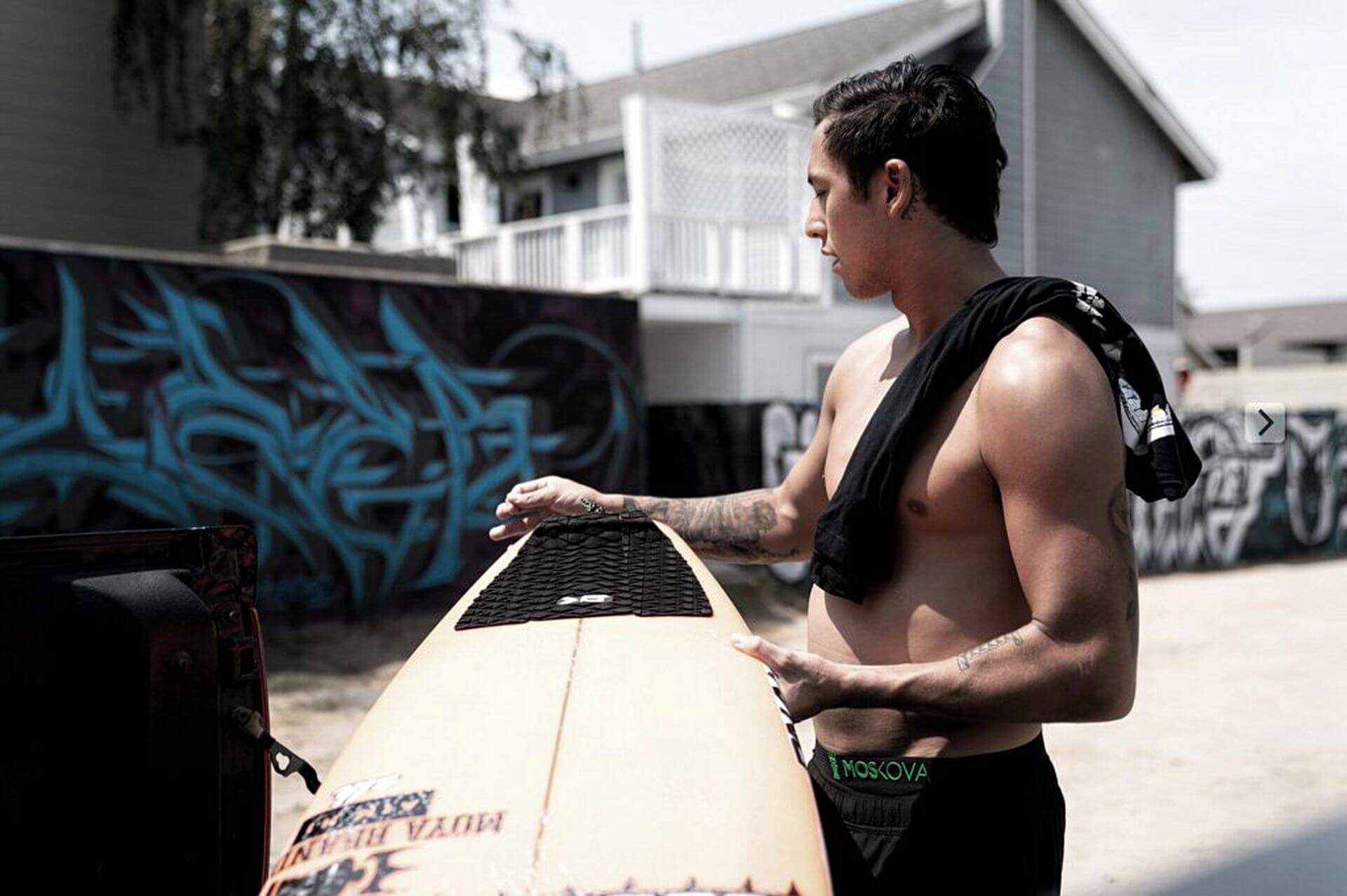There’s a crossover between big-wave surfing and jiu jitsu, but it’s different than what you might think.
It’s not about raw strength. It’s not about ego. It’s about being grounded. It’s about humility, and respect.
“There’s no fakers in surfing or jiu jitsu,” confirmed professional surfer Eli Olson when he spoke with Adventure Sports Network this winter.
Olson has grown up surfing the powerful waves along Oahu’s North Shore. He first stepped on a jiu jitsu mat when he was only nine years old. Today, he’s as respected in the lineup at Pipeline as he is on the mat at the Sunset Beach Jiu Jitsu dojo.
“There’s no fronting. You have to be true to yourself. It keeps you honest, which is what I like a lot about both of them,” continued Olson.
We’re all here for the same reason,” explained Jeff Doner, a black belt and founder of Sunset Beach Jiu Jitsu. “We’re all here to learn and improve. Having the right technique is vital to success in jiu jitsu, and that takes practice and discipline.”
An ancient Japanese martial art, jiu jitsu originated among samurai as a means to combat an armored opponent, by utilizing various techniques to throw, lock and pin opponents, using their energy against them.
In recent times Brazilian jiu jitsu has taken off, thanks largely to innovators such as Carlos and Hélio Gracie. Utilizing an arsenal of grappling techniques that require years and years of training and study to master, jiu jitsu is as much a mental endeavor as it is physical – which is what makes it so applicable to surf training.
A number of the world’s best surfers use jiu jitsu as a way to train and prepare for the harrowing conditions they may face in the ocean. And vice versa, there is a large number of jiu jitsu black belts that enjoy the solace and unique challenges that wave riding provides.
“In Brazil, a lot of people do judo and jiu jitsu. It’s a normal thing. I did a little bit of judo in high school. Then when I moved to Maui, I started going to a small jiu jitsu academy with a few Brazilian friends,” explained Women’s Big Wave Tour competitor Andrea Moller to ASN.
Both sports require an exorbitant amount of physical conditioning to perform at an elite level. But it’s as much about mastering the body as it is mastering the mind. The psychology of surfing and jiu jitsu requires mental toughness and the ability to stay calm under extreme duress.
“Jiu jitsu has helped me mentally, physically and spiritually on pretty much every level,” said Olson. “The more I trained, the stronger and more confident I felt. I feel like it’s given me head strength and physical strength. I’d be training with these big, tough guys all night then go surf in the morning and it was like, ‘Oh these waves aren’t that strong, I can hang.’”
(This is a curated story. Read the full article at www.adventuresportsnetwork.com)
Andy Gonzalez is a coach at Aces Jiu Jitsu Club. He has earned his BJJ Brown Belt under 2nd Degree Black Belt, Professor Mikal Abdullah. Follow Andy on Twitter at @GoGoGonzilla
Andy lives in Austin, Texas with his wife Amanda and their 3 beautiful children. Andy is also the father of a Marine who is honorably serving in the United States Marine Corps.

